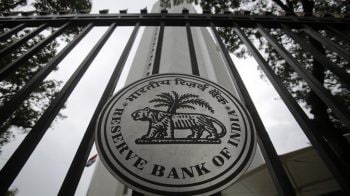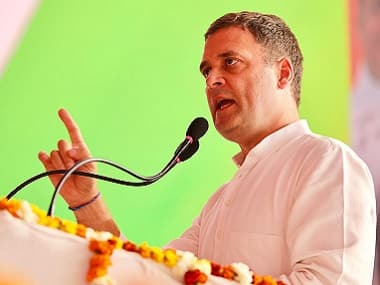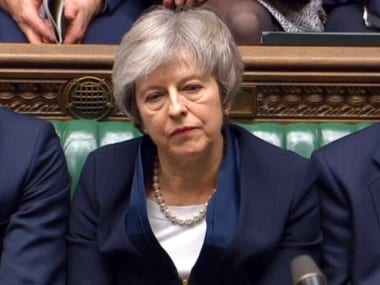Domestic economy oriented stocks and consumption stocks should do well post elections. In the short run, we should see the rupee appreciate to the 65-66 levels.
Fear is good for equities and currently, there is fear. I still believe that a selection of good stocks can deliver 20-30 percent returns over the next 12-15 months, Sandip Sabharwal, Independent Advisor at asksandipsabharwal.com, said in an interview with Moneycontrol’s Kshitij Anand.
Edited excerpt:
Q) Should Indian investors be concerned about global slowdown that has clouded equity market outlook?
A) While the performance of the global economy does have an impact on the performance of the equity market, we have to understand that each economy has its own drivers and we need to evaluate things in that perspective.
India is uniquely positioned in some aspects with its economy being largely domestic with lower global linkages.
With inflation benign and interest rates expected to go lower, we are in a good position as far as domestic-oriented stocks are concerned.
Moreover, the general elections are fast-approaching and typically after the end of uncertainty stock markets tend to do well.
Global valuations are also not very stretched and given the interest rate outlook, even with the slowdown equities, it should do reasonably well.
India should outperform post elections given the underperformance of the last few weeks.
Q) How is FY20 likely to pan out for investors and markets at large?
A) After a tough 15 months, the next financial year should be a good one for investors. Valuations across companies are attractive and the probability of making money is greater.
There is still a lot of scepticism, which is good for investors. Most of the investors I interact with these days ask more about what stocks to sell to generate cash before elections rather than what to buy.
Fear is good for equities and currently, there is fear. I still believe that a selection of good stocks can deliver between 20-30 percent returns over the next 12-15 months.
The preferred sectors will be from a mix of Infrastructure, Consumption, Capital Goods, Financials and Auto/Auto Ancillary.
Export-oriented industries and sectors could underperform.
Q) What are your expectations for FY20?
A) Earnings growth should pick up next year with the NPA issues behind financials, a pick-up in industrials and better results across the board.
Consumption-oriented companies should also deliver strong results. Overall earnings should grow around 15 percent.
Market valuations currently are at long-term averages. Expect markets to deliver near to earnings growth i.e. 15 percent over the next year.
Q) What is more promising: large, mid or small caps?
A) In terms of valuation paradigm, small caps have the greatest value. However, they are also risky.
I would advise midcaps as preferred bets.
There are a large number of companies with good growth prospects and reasonable valuations. As liquidity eases and interest rates moderate we should see a better performance from the broader markets.
Smallcaps can give better returns but there is also greater risk associated with that and that is something which should be kept in mind.
Q) Your view on the currency for the next 6-12 months?
A) The currency movements will depend on two factors- trade deficit and capital flow.
If the economy starts doing well then the capital flow can be significant over the next 12 months and these two counterbalancing factors will impact the overall currency move.
In the short run, we should see the rupee appreciate to the 65-66 levels. However, given the trade deficit, we need a weak currency and once that factor comes in, we should go back to a trend depreciation of 3-4 percent pa.
Q) Which sectors are likely to remain in limelight in FY20 and why?
A) Domestic economy oriented stocks and consumption stocks should do well post elections.
With easier availability of credit, we may also see a pick-up in the overall demand conditions.
The infrastructure sector is likely to see a renewed vigour post elections. Expect significant value picks in infra and Capital Goods.
Q) What factors are likely to impact the market in FY20?
A) Various domestic and global factors will impact the market in FY20.
Domestic factors include the outcome of elections, monsoon, the path of inflation and RBI's interest rate stance.
Global factors include the outcome of BREXIT, US-China trade talks as well as the path of the Chinese economy which is slowing rapidly.
The Indian economy is now at a good takeoff stage. However, we need a stable government with policy continuation.
Disclaimer: Moneycontrol advises users to check with certified experts before taking any investment decisions.




























































